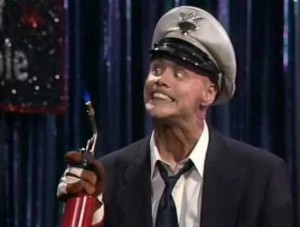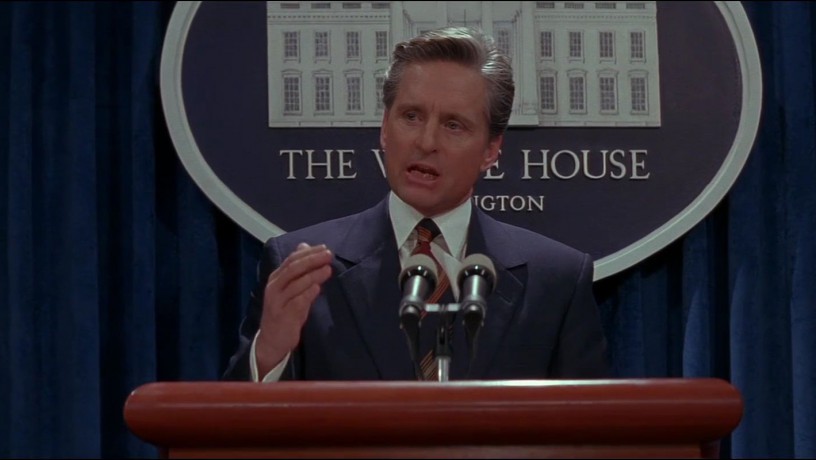To be a successful actor, it’s a must to have a clear understanding of your strengths and weaknesses. Knowing your strengths will help you to showcase your talents and stand out in auditions and performances, while being aware of your weaknesses will enable you to identify areas for improvement and focus on developing your skills.
Here’s what I think – understanding your strengths will give you an edge up on the competition. Whether it’s your ability to convey complex emotions, your physical expressiveness or your versatility in playing different types of characters, your strengths can set you apart and help you to land the roles you want.
At the same time, weaknesses can take many different forms, from difficulty with memorization to nervousness or a limited range of expression. By acknowledging and addressing your weaknesses, you can focus on developing the skills you need to improve.
In this article, we’ll address the main strengths and weaknesses actors have, and in Part II, we’ll talk about how to develop the strengths and overcome the weaknesses.
Strengths of Actors
Versatility
Being a versatile actor means having the ability to adapt to different styles, genres, and characters, and to bring a unique perspective and interpretation to each role.
There are many different factors that contribute to an actor’s versatility. These can include their ability to convey a wide range of emotions, their physical expressiveness, their vocal range, and their ability to embody different types of characters. Versatility is also closely linked to an actor’s creativity and imagination, as it requires them to approach each role with an open mind and a willingness to experiment and take risks.
A versatile actor may be equally adept at playing comedic or dramatic roles, for example, or may be able to convincingly portray characters from different time periods or cultural backgrounds. This versatility can help to make an actor more attractive to casting directors and producers, as it increases their range of potential roles and opportunities.
Empathy
Empathy is the ability to understand and share the feelings of another person, and it’s a key component of many successful performances.
One of the primary benefits of empathy for actors is that it enables them to bring a sense of authenticity and emotional truth to their performances. By being able to tap into the emotions and experiences of their characters, actors can create a deeper connection between the actor and the audience.
Empathy can also be a valuable tool when it comes to collaborating with other actors and with directors. Actors who are able to understand and empathize with their collaborators may find it easier to communicate their ideas and to work together effectively. This can lead to more successful and rewarding creative partnerships, and can help to bring out the best in each actor’s performance.
I’m told I don’t have a lot of empathy, but the truth is, I just keep it hidden. Hidden or not, this emotional awareness can also be helpful in other areas of your life, as it can improve communication skills, build stronger relationships and foster a greater sense of connection with others.
Creativity
The ability to arrive at new and original ways to approach and solve challenges is termed creativity. In acting, creativity can help you add a fresh tone to each character and to make unforgettable and memorable characters.
By approaching a role with a creative mindset, actors can break out of conventional expectations and create more dynamic and engaging characters. This can help set an actor apart from others who may be more conventional.
Creativity can also be a valuable tool when it comes to one of my favorite things — improvisation and on-the-fly adjustments in performance. Actors who are able to think creatively on their feet may be better equipped to adapt to unexpected situations or changes in a performance, and to create something truly special and memorable in the moment. I’ve seen this happen several times in plays where someone misses a mark or forgets a line.
Imagination
Imagination allows you to manifest imagery that may not be real. By being able to imagine the backstory, motivations and emotions of their characters, actors can create more complex portrayals. This can help to make a performance more memorable, and can create a deeper connection between the actor and the audience.
For artists, imagination is an advantageously helpful tool when developing a sense of setting and atmosphere during performances. This ability enhances the quality of the action’s immersiveness, which makes for a more exciting experience for audiences. This is particularly helpful in a low budget production where there are little to non-existent sets.
I looooove talking about weakness. Even as I’m growing in age, I’m discovering more about my shortcomings.
Nervousness and Anxiety
Nervousness and anxiety can manifest in a variety of ways, including physical symptoms such as sweating or shaking, difficulty focusing, and a sense of self-doubt or fear.
One of the primary ways that nervousness and anxiety can impact an actor is by affecting their ability to remember lines and blocking. When an actor is nervous or anxious, they may struggle to recall their lines or to remember where they need to be on stage. This can lead to missed cues, fumbled dialogue, and an overall sense of unprofessionalism that can detract from the overall quality of the performance.
Nervousness and anxiety can also impact an actor’s ability to connect with their scene partners which can lead to a performance that feels disconnected or flat. Also, when an actor is nervous or anxious, they may be more hesitant to try new things or to push the boundaries of their performance, which can limit their ability to create something truly unique and impactful.
Overacting
Overacting occurs when an actor exaggerates their movements, expressions, or vocalizations to an extent that is unrealistic or distracting.
When an actor overacts, their performance can feel artificial or forced, which can detract from the authenticity and emotional impact of the scene. This can make it more difficult for audiences to engage with the story or to feel invested in the character’s journey.

Now, there are some characters that actually call for overacting. Jim Carrey plays a lot of these characters and he pulls it off with what looks like no effort. I remember seeing him in a show from the 90s called In Living Color. Check out this clip to see how Jim’s overacting is welcomed in the scene where he’s hypnotized into a chicken. Ahaha!
Difficulty with Memorization
Memorization is a critical component of acting, as actors are required to learn and deliver complex dialogue and stage directions with accuracy and consistency. When an actor is focused on trying to remember their lines, they may be less able to connect with their character and to fully explore the emotions and motivations that drive the scene.
One of the most intense line memorization I came across is in the Aaron Sorkin film The American President, starring Michael Douglas. Watch the almost 5 minute monologue here, and after that, please reflect on how you can, or cannot, memorize a lengthy speech.
Inability to Take Direction
It’s imperative for actors to be able to take direction from their director and to incorporate feedback into their performance. When an actor struggles to take direction, it can affect their ability to work collaboratively with their fellow actors.
Every play, film or series has its unique vision and style, and directors play a critical role in guiding the actors to deliver performances that fit with that vision. When an actor is unable to take direction, they may struggle to adapt to the specific needs of the production.
The inability to be flexible can also hinder an actor’s ability to work efficiently in the workplace. If an actor is unable to incorporate director or fellow actor feedback, conflicts or disagreements may emerge.
And another thing — as you know, acting is an ongoing process of development, and actors must be open to feedback and criticism to continue to improve their skills. When an actor is unable to take direction, they may struggle to learn from their mistakes, leading to stagnation or a lack of growth in their career.
Limited Range or Typecasting
When an actor is consistently cast in the same types of roles, it can make it difficult for them to showcase their versatility and to demonstrate their range as an actor. This can lead to a lack of opportunities and can make it more challenging for the actor to advance their career.
It can also impact an actor’s ability to connect with audiences. When an actor consistently plays the same types of roles, it can lead to a sense of predictability and can make it more difficult for audiences to engage with the character. I’m sure you can name a handful, if not more, actors that you feel disconnected from!
Additionally, if an actor is consistently typecast, they may struggle to develop a rapport with directors, who may view them as one-dimensional.
Versatility, empathy, creativity and imagination are all key strengths that can help actors connect with audiences. However, nervousness and anxiety, overacting, difficulty with memorization, the inability to take direction and limited range are all weaknesses that can hold actors back.
In Part II of this series, we’ll explore strategies for developing an actor’s strengths and overcoming their weaknesses. By working to cultivate their strengths and to address their weaknesses, actors can improve their craft, expand their range, and create more opportunities for themselves in the world of acting. So stay tuned for more insights on how to become a more successful and effective actor!








